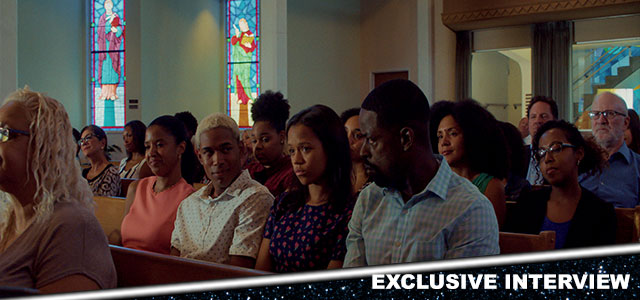
An African-American family is torn asunder by tragedy in sweeping drama Waves. It's the latest film from writer-director Trey Edward Shults, who scored a hit in 2017 with acclaimed psychological horror It Comes at Night. And like that movie, Waves features a powerful performance from rising star Kelvin Harrison Jr.
He plays Florida teenager Tyler, whose family is headed up by stern father Ronald (This is Us actor Sterling K. Brown). Tyler has a sister, Emily (terrific newcomer Taylor Russell) and a loving stepmother, Catherine (Hamilton's Renee Elise Goldsberry). But the steady fallout from a shoulder injury sustained during a high-school wrestling match sends his life spiralling out of control.
The movie infuses bold, colourful visuals and euphoric music with a profound sense of empathy for all its characters. We were delighted to catch up with Kelvin to discuss his character and his close working relationship with Shults.
To begin with, when you first read the script by Trey Edward Shults, what was the emotional truth that made you think, as an actor, I can do this justice?
It was more to do with my trust and understanding of Trey. We both share a strong friendship. And in the process, we both started to reflect on the mistakes we may have made when we were 18, the age that Tyler is in the story.
It's also about how we project ideas of what we want to become as adults. You know, at high school I wasn't a jock, I wasn't necessarily cool, I didn't have a six pack! I remember looking at certain kids and thinking, wow, their lives appear to be perfect. They've got it figured out and they're going to fly in this world. I'm so lost.
Ultimately those people were looking for identity as well. However, as people, we often don't give ourselves permission to do that, and we also don't give ourselves permission to fail. We're so busy trying to be perfect. Seeing the vulnerability, the nuances, the toxic masculinity from a different person's point of view helped me bridge that gap. It taught me to be less judgemental of others and also taught me to connect.
The movie itself has the ability to connect with black, brown, white – everyone across the world. Because it's hard for everyone to come of age, you know?
Yes, well you've hit on the big success of your performance and indeed the movie, which is there's a universality to both. Tyler is someone we can all recognise with all his flaws and strengths. He's a very normal, relatable young man, so how much of a challenge is it, as an actor, to make normality an engrossing experience for the audience?
Well, I had time. I worked with Trey for eight months on the script before we shot it. I got to ask every question imaginable, like why is the colour of Tyler's truck orange, or what colour should his hair be, and what does that mean? What does the haircut look like? All of these things I had time to consider while I settled into the role.
I also worked from a psychological place – I spoke with a therapist about what might be going on in his psyche. He's at war with his sanity in many ways. It was about identifying those moments where he's at war with his own feelings. From there, it's about how that leads to depression, and ultimately to anger.
And also, when is he looking for moments of joy and levity in his life? It was about identifying different colours and moods in the script, and looking at the trajectory of what this boy is going through. Then there's the acting obstacles – what do I need to overcome and so forth. All of that stuff helped me do the crazy work in my head, then I just let it go, as all my favourite actors say. It was a lot of questions!

I interviewed Trey and he spoke about the close collaboration you shared on this and also your previous movie, It Comes at Night. What is the nature of that collaboration? Do you have a shorthand?
It's got to the point where we just really trust each other. I would go and visit Trey before he'd even written the script, and we would hang out playing cup pong or going to arcades. And in doing so, we'd begin to understand more about each other, which feeds into the writing.
All of these things help in developing a shorthand and a dialogue that I don't often get with other directors because I just don't know them. Trey knows how to use my vulnerabilities to my advantage, and I feel like it's cheating, really. [Laughs]
I read that Trey was open to improvisation on the set. Were you able to bring real-life experiences into the dialogue and the character?
Yeah, he wanted it to feel real, and things can change. I did a film called Luce and it was very much about the words on the page. That was the truth, and it was about navigating what the technical side of the performance was going to be.
This, however, was more about living and breathing, and just being present. A more naturalistic performance. So, a lot of that would change when another actor came to the set. So, when [Alexa Demie] showed up, she had her own ideas of who her character [Tyler's girlfriend Alexis] is. How she is going to operate and move, and the different things she needs from me as an actor?
To make sure everything felt earned, there had to be room to fill in space, especially when dealing with argument scenes, because we were dealing with something that's not structurally composed. It's about the feeling and the volatile nature of a young relationship, and what do we bring to that. What are our triggers?
It would change on the day constantly, so Trey definitely let us riff. He knew that, in the process of developing these characters, we understood them better than he did. We even built Instagram accounts for them. We'd been posting back and forth in character and allowing the extras on the movie to follow us.
We created a world for ourselves, and Trey wanted us to have fun with it. He created space for us to do that, which is incredible. We actors never usually get to do that on set.

In terms of the nature of the filmmaking, it's astonishing. It's a sensory experience that washes over you in these surges of visuals and sound. When you first saw the completed movie, did you have a visceral reaction to it?
Oh yeah. The first time I saw it was in a longer cut. I was with Trey. I wasn't supposed to see it. I surprised him by visiting him in Florida – I told his girlfriend I was coming. And when I arrived, he was like, "I'm going to show you the first 15 minutes." I then asked him to show me some more. Three hours later, we had watched the whole movie.
I was so grateful and moved because I knew he was taking a risk by casting me. I haven't done much, and it's also his story. Plus, he's a white director and he's cast a young black actor to tell this story. I knew it was a lot of work for Trey to be respectful of our experiences as black people, and he didn't want to lean into the clichés or stereotypes of what this movie could potentially be.
It was a reminder that Trey absolutely loved this character of Tyler. He saw me in it, every step of the way. He really managed to take music, and to shoot the movie in an immersive way. We're with Tyler; we feel his pain, we feel his insecurity and passion, and also the tragedy of it all. We then come out of that to experience the second half of the movie, which I didn't get to spend time doing. I didn't get to work with Taylor Russell and Lucas Hedges that much, yet when I watched it I felt healed.
A year passed between finishing the movie and seeing it, and I was depressed for a long time, because I had so many unresolved feelings that I had unpacked from my childhood and my trauma. Those were the places I had to go in order to make this movie. So, to see the second half and see the beauty of our voice, to see how those connections and relationships bring everyone together, our flaws as human beings – just embracing it all was exactly what I needed.
Trey is only 31, and when we did It Comes at Night, he was only 26. I remember thinking this is a kid who has so much heart, so much empathy for the world, and he's given us this gift, which I'm so grateful and lucky to be a part of. I remember crying and talking to Trey, being shocked that we had made that movie.
Empathy, for me, is the byword. This is a film that has empathy to spare. One of the other things the movie does brilliantly is it gives a sense of how we soundtrack our own lives. How we imagine our own existence playing out to music, how it flows and changes and overlaps. If you could have a particular artist scoring your life, who would it be?
That's a good question! I don't know – some days it might be a certain artist, and other days I'd like Hans Zimmer to score my life! [laughs] There are variations. It changes day by day. I grew up listening to so many different things.
I grew up with parents who are jazz musicians, so I grew up with a lot of Billie Holliday and Ella Fitzgerald and Miles Davis. Some days I feel like I'm that guy, but because I'm an actor, it's always changing. One day I'm this and the next day, I'm something else. All those different people, that would be cool.
For me, it would be John Williams. That would be perfect.
Oh, cool!

I mentioned the word empathy earlier and, clearly, we're in dark times at the moment, not just in the UK and the USA but all over the world. What message do you hope that audiences will take away from the movie when they see it?
What I took from Tyler's section of the film, which contrasts with Emily's section, is that you can see the chaos. There are so many influences around us, and we're constantly dictating our lives based on that. We're not taking a step back and allowing ourselves space to be patient, to be observant and process what's happening. And we're not giving ourselves permission to be able to process.
What I hope people realise is that they don't have to lean into the chaos. I can take two steps back, accept where I am right now, be good with that and allow myself time to get to where I need to be in the country and the world, instead of being so reactionary.
We're constantly reacting to things around us, and maybe that's not the right way to go about it. I got a therapist afterwards and he always told me to think before we talk. I think the movie gives us the opportunity to realise that we don't have to live in the chaos. We have a choice to be patient with ourselves.
Hear, hear. I love that word reactionary. It's true we're in such a race nowadays to be the first ones to get our opinions heard. In terms of your own career, you had an astonishing year in 2019 with this, Luce and also Monsters and Men, which is a terrific film. Is there a common thread between all of the characters you've played?
Yeah. I think that the universe has told me what I need to be doing. I grew up watching the Disney Channel and I thought I wanted to be on a sitcom. Yet it didn't happen that way. At one point I thought I would end up in the Guinness Book of World Records for being in the most slavery pictures! I was in Roots, Birth of a Nation, 12 Years a Slave and Underground. But I ended up doing those things because I needed to understand my history.
The opportunities to do these stories like Waves, about young black boys, the social and racial issues occupying the country – so much of that is to do with understanding where we came from, about understanding how we were beaten down and destroyed. We carried that chip on our shoulders.
For me, it's about channeling that history through the characters. Zyrick in Monsters and Men is completely different from the character of Luce, and how he is able to walk through the world every day. And then we look at Tyler in Waves, who doesn't have the vocabulary or the words to communicate what he's going through. It's therefore about highlighting the differences yet showing how similar each character's experience is.
It's something I've been fascinated by, and those are the roles that I've gravitated towards as I've grown up. Moving forwards, though, I want to do a horror movie, a sci-fi movie – I'm ready for a break, you know! [Laughs]
I really hope it happens. Kelvin, thanks a lot!
Thank you!

Waves is now available to stream. Enjoyed our interview? Let us know @Cineworld.

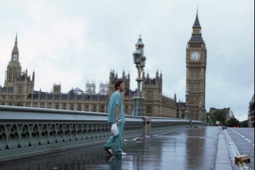
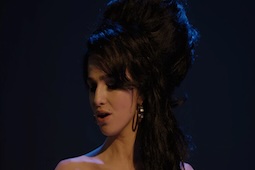
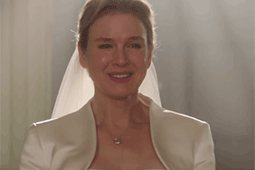
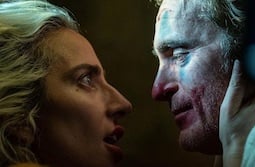
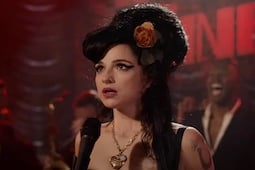
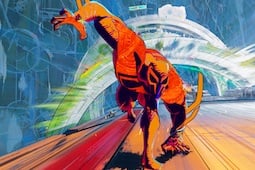
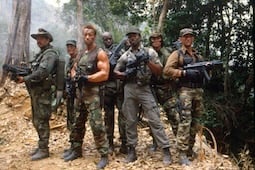

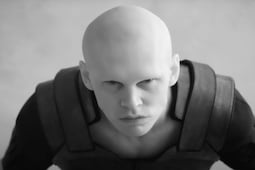

.jpg)
.jpg)
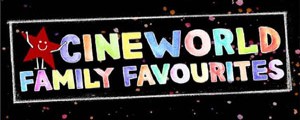
.jpg)
.png)



